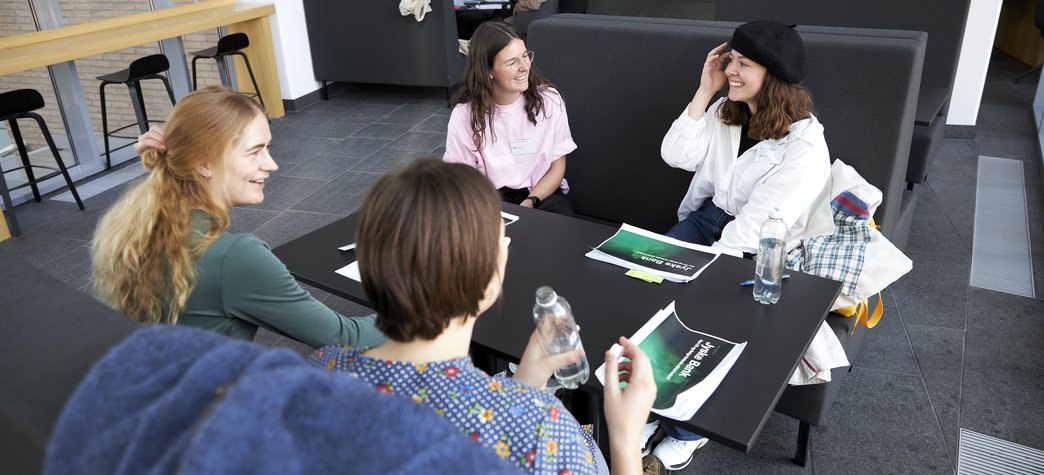Case competitions

What is a case competition?
A case competition is a contest where students are challenged to solve real-life business cases or ‘challenges’ a company faces. The goal is to solve a given case to the best of your abilities and to present your idea, concept or prototype to this company or ‘case owner’. It is a very educational experience and a perfect preparation for your professional career, combined with a lot of fun!
Why should you participate in a case competition?
- It will give you the chance to develop your skills in relation to working with design processes. Other skills like problem solving, logical thinking, creativity, teamwork, presenting, negotiating, persuasion, … can be trained.
- You’ll get the chance to pitch some good ideas and show potential employers what you can do – expand your network and meet new people!
- It’s a good platform for using your theoretical knowledge to solve practical problems
- You’ll learn more about business life and gain insight into strategic design thinking
- It will look good on your CV
- Have fun!
What happens at a case competition?
Although case competitions come in all different shapes and sizes, mostly they are structured in this format:
Introduction
Meet the team: Introduction of team members, sometimes accompanied by some ‘icebreaker’ activities.
A case competition is a team event, students form teams of usually 4 to 6 people. Working within a team will challenge your teamwork and leadership skills. Ideally the team consists of people with diverse backgrounds and perspectives. Creativity and innovation is often necessary to successfully solve a case and therefore input from different people is essential.
Knowing what role you, with your personality, can play in a team is essential. Prepare yourself and do this test to know what kind of team player you are. Share this information with your team member while introducing yourself to the team. To know what your weaknesses and strengths are, you can prepare your introduction by taking a personality test. Again, share your profile with the rest of your team. All this information is very useful e.g. when the roles within the team are divided, but also for team members to know how to communicate efficiently.
The challenge: Company or organization presents itself and gives more background information about the challenge
Before entering the case competition, investigate the partner company that will be providing the business case. Look up the company website, their linkedin profile or any recent news articles which mention the company. In this way you will generate insight into what the company is all about and you will have a chance to ask additional information to the case owner.
Start working with your team on the challenge
Analyze the information & do further research: After receiving more information on the case by the challenge owner, read through the information individually and make sure each team member comprehends the whole case.
Get organized: Keep track of what has been done and what still need to be done. Divide tasks within the team (keep in mind your role as team player) and set a time limit for every part in order to manage time efficiently
Brainstorm to gather ideas & select the best ideas to work with
Everyone shares their ideas. Think out of the box, no idea is too crazy at this point in the process.
Now that all ideas are on the table, prioritize and start selecting the ones your team is going to work with. Learn more about creativity, methods and rules for brainstorming.
Prepare a business plan
Developing a business idea requires a step-by-step approach. On our website you can find very useful tools to help you structurize all information during the case competition.
Prepare your pitch
A great idea will only get your foot in the door. To win it is important that you present your idea in an enthusiastic and structurized way, eg by telling a great story. Captivate your audience with your message and take them on a journey with you, check out our tips for a great pitch!
Present your pitch to the jury
Winner(s) are announced
Reflect
And afterwards? Some time for reflection...
Did you solve the case? Well done! But it is even more important to see what you yourself have learned. Revisit your personality- and team role test and check in which skills you have grown. What are the skills you still have to work on? How did you participate in your team? What went well, what didn’t?
Overview of Growth4SMEs case competitions
Here you can read more about the upcoming and previous case competitions in Norway, Belgium and Denmark